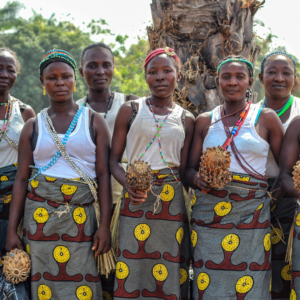At Geneva Peace Week 2025, a high-level panel convened by the International Labour Organization (ILO) examined how decent work and food security can act as powerful drivers of conflict prevention, social cohesion, and sustainable peace in fragile and post-conflict settings. The discussion brought together representatives from the UN Peacebuilding Fund, the Food and Agriculture Organization (FAO), Interpeace, and Sudanese civil society to explore practical approaches for creating livelihoods that rebuild economies while promoting inclusion and resilience.
Marcus Lenzen, Deputy Chief of the UN Peacebuilding Fund, emphasized that peace cannot be imposed but must be nationally owned and locally driven. He noted that tangible improvements in socio-economic well-being are essential, highlighting the Fund’s growing role in supporting initiatives that integrate livelihoods, climate resilience, and social inclusion, often in partnership with agencies like the ILO and FAO.
Nieves Thomet, Humanitarian–Development–Peace Nexus Advisor at the ILO, underscored that decent jobs symbolize dignity, belonging, and stability. She shared insights from a joint ILO-FAO-IOM program in Mauritania, which prevents climate-related conflicts by promoting dialogue and employment, emphasizing that peace endures only when communities lead and shape the process.
Julius Jackson, head of FAO’s Conflict and Peace Unit, highlighted the strong link between food security, resilience, and peace, noting that up to 80 percent of people in fragile contexts rely on agriculture. He cited examples from Kenya and Uganda where FAO programs integrate peacebuilding with the development of agricultural value chains, enabling refugees and host communities to work together on high-value crops. In Somalia, a Fund-supported project uses digital mapping to help youth mediate land and water disputes.
Voices from Sudan illustrated the critical role of local peacebuilders. Ismail Younus Mohammed of the Danish Refugee Council and Alrasheed Mohammed Eisa, Head of the Peace and Reconciliation Committee in Central Darfur, explained how local committees have stepped in to resolve disputes, reopen roads, and restore livelihoods in the absence of formal government structures, helping communities maintain daily life despite ongoing violence.
The panel concluded that sustainable peace relies on inclusive economic recovery. Partnerships between the UN, governments, and local actors are crucial to ensure that livelihoods, particularly for women, youth, and displaced populations, foster social cohesion and stability. Federico Negro, Senior Specialist for Coordination and Crisis Response at the ILO, emphasized that tangible peace dividends such as jobs, food, and dignity are what transform peacebuilding from an aspiration into a lived reality.






